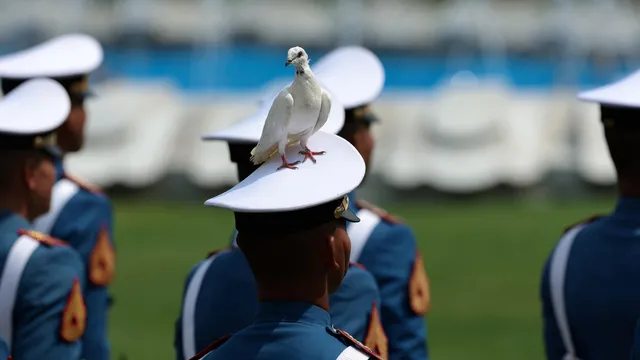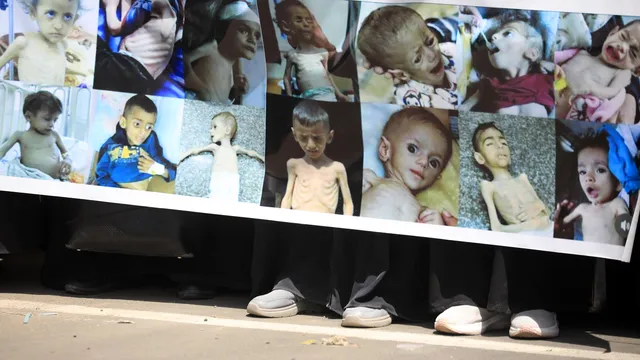In Mumbai, a handful of birdseed is at the heart of a major crisis being debated across the country. The closure of dozens of feeding places – called kabutarkhanas – where pigeons gather has sparked protests and clashes with Indian police.
Large canvases put up by the municipality have been torn down and seeds scattered on the ground in protest. In the country’s most populous city, the most ordinary urban scene has become a public issue, especially as the issue has taken on a national dimension, supported by religious figures and political parties.
The restrictions imposed by the Maharashtra state government, led by the Indian People’s Party – a far-right nationalist Hindu party – are driven by potential health risks associated with pigeon feathers and droppings. This new measure almost immediately angered animal rights groups and a section of the Jain community, followers of a religion that preaches non-violence towards all living beings.
The protest quickly gained momentum on the ground. During a rally against the closure of the kabutarkhana, activists clashed with local authorities. Jain monk Muni Nilesh Chandra Maharaj threatened to go on an indefinite hunger strike if the restrictions were not lifted: “Our religion says that it is permissible to take up arms to defend religion. Our hunger strike will be that weapon.”
The Jain community is so supportive of the existence of kabutarkhanas because they strictly adhere to the principle of non-violence towards all living beings, which is very popular in Buddhist and Hindu beliefs in Southeast Asia.
Dhiraj Baldia is an animal rights expert based in Mumbai who works for a Jain organization that fights for the protection of animals. “Feeding living beings is part of the scriptures,” he told the New York Times, emphasizing, “Serving those who have no voice, and feeding the birds too.” The cultural tradition even cites the example of Shantinatha, a spiritual teacher who is believed to have saved a god disguised as a pigeon by offering him his own flesh.
On the other hand, Kishore Rite, director of the Environmental Research Organization, highlights the dangerous growth of the pigeon population. Fed in abundance, they multiply, especially since most of their predators have disappeared - sanitary regulation is necessary.
“Bird droppings and feathers can cause fungal infections. Prolonged exposure to them can lead to interstitial lung disease, which scars the tissues and can be fatal if left untreated,” warns Gopal Chand Kilnani, a pulmonologist in New Delhi. | BGNES

 Breaking news
Breaking news
 Europe
Europe
 Bulgaria
Bulgaria







